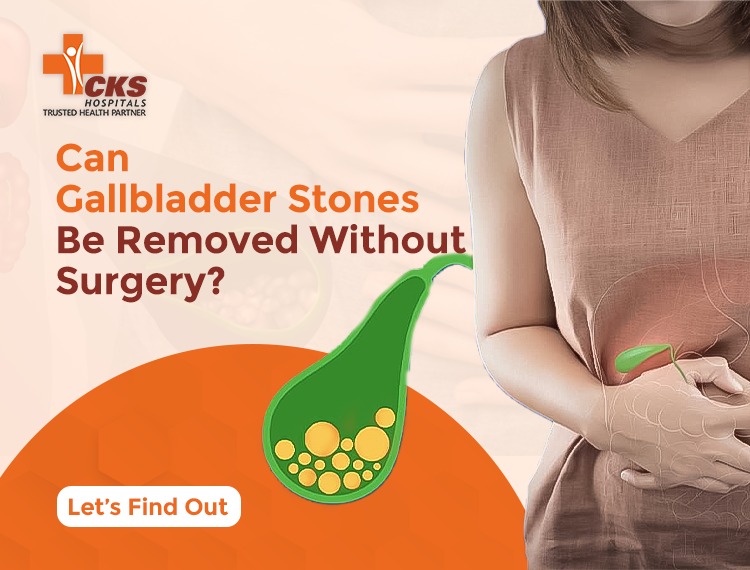Heart Health Tips
The heart is a muscle that pumps blood throughout your body. It’s a vital organ that helps to keep you alive and healthy. One of the most important jobs of your heart is to supply oxygen-rich blood to all parts of your body so that they can function properly.
Now We Provide the Complete Guide For Heart health tips
What is Cardiology?
Cardiology is the science and practice of treating heart and blood vascular conditions. A cardiologist may be recommended for a patient with heart illness or cardiovascular disease.
A subspecialty of internal medicine is cardiology. A cardiac surgeon is not the same thing as a cardiologist. A cardiac surgeon makes an incision in the chest to operate on the heart.
An expert in the diagnosis and treatment of cardiovascular problems is a cardiologist. The cardiologist will conduct testing and maybe carry out various treatments like pacemaker insertion, angioplasty, or heart catheterization.
Methods for Leading a Heart-Healthy Lifestyle
1) Avoid tobacco
The greatest approach to protect your heart from illnesses and deaths brought on by smoking is to never start smoking. But if you do smoke, it’s best to stop as soon as you can.
Your heart and cardiovascular system gain from quitting smoking both now and in the future:
A) After 20 minutes of quitting smoking, your heart rate begins to slow down.
B) In just 12 hours after quitting, the blood’s level of carbon monoxide returns to normal, allowing more oxygen to reach crucial organs like the heart.
C) Your risk of stroke lowers to that of a lifetime nonsmoker four years after stopping.
2) Bring down cholesterol
What is cholesterol?
To function effectively, your body requires some cholesterol. However, if there is too much in your blood, it can adhere to the artery walls and constrict or even block them. You run the risk of developing coronary artery disease and other heart disorders as a result.
How can diet help me lower my cholesterol?
Dietary adjustments that reduce cholesterol are part of heart-healthy lifestyle improvements. One illustration is the DASH diet. The Therapeutic Lifestyle Changes diet is another and advises that you
Select wholesome fats.
Limit both total and saturated fat intake.
Less than 7% of your daily calories should be saturated fat, and no more than 25 to 35 per cent of your calories should come from dietary fats. The maximum amounts of fats you should consume each day depend on how many calories you consume:
Eat fewer foods high in cholesterol.
Less than 200 mg of cholesterol per day is recommended if you’re aiming to decrease your cholesterol. Animal-derived meals including liver and other organ meats, egg yolks, shrimp, and dairy products made from whole milk all contain cholesterol.
Consume a lot of soluble fibre. Soluble fibre-rich foods work to stop your digestive system from absorbing cholesterol. These foods consist of:
● Cereals made with whole grains, such as oatmeal and oat bran
● Apples, bananas, oranges, pears, prunes, and other fruits
● Legumes like lima beans, chickpeas, black-eyed peas, lentils, and kidney beans
Frequently consume fruits and vegetables. Consuming a lot of fruits and vegetables can enhance your intake of key cholesterol-lowering substances. These substances, often known as plant stanols or sterols, function.
Limit Alcohol
Alcohol increases calorie intake, which may result in weight gain. You can have higher LDL and lower HDL levels if you are overweight. Due to its ability to boost triglyceride and blood pressure levels, drinking too much alcohol can also increase your chance of developing cardiac ailments.
3) Manage diabetes
What is diabetes?
The three primary kinds of diabetes are as follows:
Type 1 diabetes
Your body is unable to produce insulin. This is problematic because your body needs insulin to convert the sugar (glucose) in the food you eat into energy. In order to survive, you must take insulin every day.
Type 2 diabetes
A person with type 2 diabetes has poor insulin production and/or usage. To help control your diabetes, you might need to take medication or insulin. The most prevalent kind of diabetes is type 2.
Gestational diabetes
When a woman is pregnant, she may get this type of diabetes. After the baby is born, it usually disappears. But even if it does, these mothers and their children will still be affected.
● Having a good diet can:
● Keep a general state of health
● Better control of your blood sugar levels
● Get the desired blood lipid (fat) levels
● Keep a normal blood pressure.
● Keep your weight in a healthy range
● Halt the progression of diabetes problems or slow their onset.
Control your blood pressure
There are 2 types of Pressure
High Blood Pressure
The force or pressure of blood pushing against blood vessel walls is measured as blood pressure. When you have hypertension (high blood pressure), your body’s blood vessel walls are always under too much pressure. Because you might not be aware that anything is wrong, high blood pressure is sometimes referred to as the “silent killer.” However, the harm is still being done to your body.
The two figures in your blood pressure reading are. Systolic blood pressure, which appears as the top number, gauges the force exerted on the blood vessel walls when your heart beats or contracts. Diastolic blood pressure, which appears as the bottom number, gauges the force exerted on your blood vessels between heartbeats as your heart slows down.
Low Blood Pressure
The term hypotension refers to low blood pressure. Hypotension in adults is frequently defined as a blood pressure level of 90/60 mm Hg or less.
Because low blood pressure doesn’t provide your body and heart with enough oxygenated blood, hypotension can be harmful.
Hypotension may have various possible causes, such as:
1. heart issues
2. blood loss due to pregnancy dehydration
3. a serious infection (septicemia)
4. significant allergic response (anaphylaxis)
5. eating disorders and endocrine issues
6. certain medicines
7. Usually, dizziness or lightheadedness accompany hypotension. Find out the reason for your low blood pressure and what you can do to boost it by speaking with your doctor.
Also Read – Difference Between Heart Attack and Heart Failure that You Must Know
Maintain good dental hygiene
Your teeth will last the rest of your life. Here are some actions you can do to keep your mouth healthy and your teeth strong.
Brush your teeth with fluoride toothpaste and drink fluoridated water.
Maintain good dental hygiene. To remove dental plaque, brush your teeth thoroughly twice a day and floss once a day in between your teeth.
Even if you wear dentures or have no natural teeth, schedule an annual appointment with your dentist.
Use no tobacco products at all. Quit smoking if you do.
Limit your alcohol intake.
Why is it crucial to get adequate sleep?
1. A good night’s sleep has lots of advantages. It can assist you in:
2. less frequently become sick
3. Maintain a healthy weight.
4. Reduce your likelihood of developing significant health issues including diabetes and heart disease
5. Become less stressed and happier.
6. Improve your ability to think clearly, perform better at work and school, and get along with others.
7. Make wise decisions to prevent injury; for instance, tired driving results in hundreds of car accidents annually.
Manage mental health and stress
Being able to improve one’s mental health is wonderful. Physical and mental health can both be improved. It might even stop issues from developing into severe mental illness. Here are some suggestions to help lift your spirits and give you the power to manage your mental health.
Reach out to others and establish contact
Positive social interactions have been found in numerous research to enhance mental health. These relationships may originate from close friends, relatives, or affinity groups. Researchers claim that social support makes people feel taken care of, loved, and respected in a meta-analysis of studies on mental health by Tayebeh Fasihi Harandi and colleagues. Less anxiety, depression, and other problems result from this.
Continually Be Positive
Health—both physical and mental—is impacted by negative thinking. Physical and mental health are both improved by putting as much emphasis on the positive as you can. According to Mental Health America, with more practice, the brain can literally be rewired to think positively. An excellent place to start is by recording your blessings at least once per week.
Try Your Best to Stay Active
This can be as straightforward as lending a sympathetic ear to a buddy who is struggling or helping out an elderly neighbour.
Conclusion
The foundation of general good health is a healthy heart. Any age can avoid heart disease and reduce your chance of having a heart attack or stroke by adopting a healthy lifestyle. You may start caring for your heart at any age, regardless of your age. It is true that the sooner you start making healthy decisions, the longer you will benefit from them. But even if you’ve already had a heart attack, changing unhealthy habits for good ones to support good health can help.
Exercise and eating healthier foods are two of the best strategies to promote heart health. CKS Hospital Is the Best Heart Hospital in Jaipur
Recent Posts
- All Posts
- Blog

Read More
Our Speciality
- Cardiology & Cardiac Surgery
- Neurosurgery
- Orthopedics & Joint Replacement
- Urology
- Gastroenterology
- Nephrology & Dialysis
- Bariatric & Metabolic Surgery
- ENT & Head Face Neck Surgery
- Internal Medicine & Critical Care
Explore More
Our Doctors

Dr Prakash Chandwani
(Chief Managing Director) Director & Head Dept of Cardiology

Dr Mahesh Goyal
Director & Head Dept of Allergy Specialist, Asthma & Sleep

Dr Mohammed Sharif
CEO & Global Operations

Dr Ghanshyam Agrawal
Consultant Dept of Neuro Surgeon

Dr Sumit Kamble
Consultant Dept of Neurology
See All Doctors

